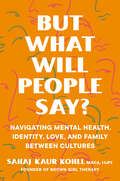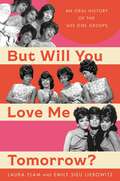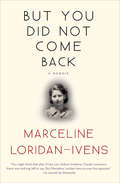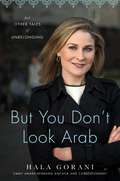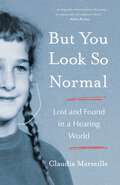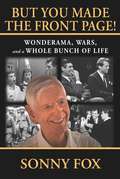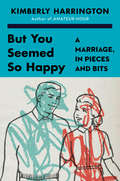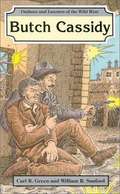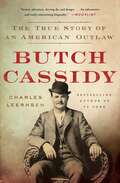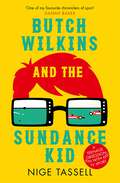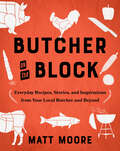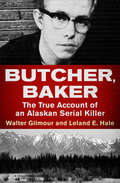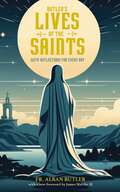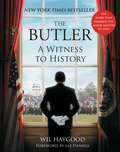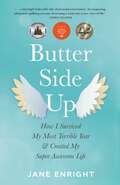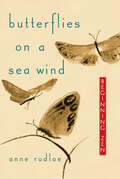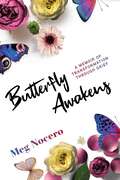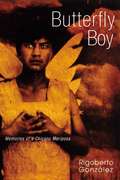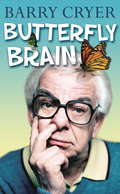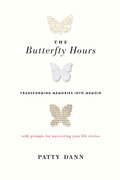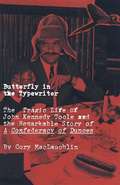- Table View
- List View
But What Will People Say?: Navigating Mental Health, Identity, Love, and Family Between Cultures
by Sahaj Kaur Kohli&“This wonderful book is a compass, a blueprint, a mirror, and a friend. Kohli gives language to what many of us feel but can&’t yet articulate.&”—Erika L. Sánchez, New York Times bestselling author of I am Not Your Perfect Mexican Daughter &“Loving, culturally informed, and holistic... [Kohli] compassionately shares her own story, and guides readers through the nuances and pain of assimilation, individuation, and mental health. How I wish I had this book back when I was trying to figure it all out for myself!&” —Ramani Durvasula, PhD, author of It&’s Not YouA deeply personal, paradigm-shifting book rethinking traditional therapy and self-care, creating much-needed space for those left out of the narrativeWriter and therapist Sahaj Kaur Kohli grew up knowing exactly what it means to straddle multiple cultures at once. Like many children of immigrants, she has often found herself plagued by questions: Can I establish my own values and embrace where I come from? Is prioritizing my mental health really rejecting my culture? How do I set boundaries and care for myself when family and community mean everything? Even after becoming a therapist herself, she saw those same gaps in the mental health world, leading her to wonder, like so many children of immigrants: what about us?While conversations around mental health are becoming increasingly open, our models remain largely Eurocentric and focused on individuality. Sahaj has sought to challenge these long-held models, using deep personal reflection, therapy, community building, and a whole lot of trial and error, eventually navigating her own way to understanding and acceptance. Here, she shows us how to get there, all the while reminding us that personal healing is inextricably connected to collective healing.But What Will People Say? elegantly weaves together personal narrative, anecdotal analysis, and comprehensive research. Sahaj offers advice and tools for everything from navigating generational trauma, guilt, and boundaries, to breaking down stigmas around therapy and celebrating cultural duality. Democratizing and decolonizing the way we think about mental health and self-help, Sahaj&’s incredible work is nothing short of a revolution.
But Will You Love Me Tomorrow?: An Oral History of the '60s Girl Groups
by Laura Flam Emily Sieu LiebowitzFeaturing over 300 hours of new interviews with 100+ subjects, an oral history of the girl groups (such as The Ronettes, The Shirelles, The Supremes, and The Vandellas) that redefined the early 1960s The girl group sound, made famous and unforgettable by acts like The Ronettes, The Shirelles, The Supremes, and The Vandellas, took over the airwaves by capturing the mixture of innocence and rebellion emblematic of America in the 1960s. As songs like "Will You Love Me Tomorrow," "Then He Kissed Me," and "Be My Baby" rose to the top of the charts, girl groups cornered the burgeoning post-war market of teenage rock and roll fans, indelibly shaping the trajectory of pop music in the process. While the songs are essential to the American canon, many of the artists remain all but anonymous to most listeners. With more than 100 subjects that made the music, from the singers to the songwriters, to their agents, managers, and sound engineers—and even to the present-day celebrities inspired by their lasting influence–But Will You Love Me Tomorrow: An Oral History of 60s Girl Groups tells a national coming-of-age story that gives particular insight into the experiences of the female singers and songwriters who created the movement.
But With the Dawn, Rejoicing
by Mary Ellen KellyIn the 1930's, little could be done for people who had rheumatoid arthritis, and many of them became completely bedridden! Mary Ellen is one of those people. With humor and compassion, yet without hiding her frustrations and disappointments, Mary Ellen Kelly writes of her adjustment to disability, her faith journey, and her ability to serve God and enjoy life. This is an eloquent, delightful and inspiring book.
But You Did Not Come Back: A Memoir
by Judith Perrignon Marceline Loridan-Ivens"You might come back, because you’re young, but I will not come back.”-Marceline Loridan’s father to her, 1944A runaway bestseller in France, But You Did Not Come Back has already been the subject of a French media storm and hailed as an important new addition to the library of books dealing with the Holocaust. It is the profoundly moving and poetic memoir by Marceline Loridan-Ivens, who at the age of fifteen was arrested in occupied France, along with her father. Later, in the camps, he managed to smuggle a note to her, a sign of life that made all the difference to Marceline-but he died in the Holocaust, while Marceline survived. In But You Did Not Come Back, Marceline writes back to her father, the man whose death overshadowed her whole life. Although her grief never diminished in its intensity, Marceline ultimately found her calling, working as both an activist and a documentary filmmaker. But now, as France and Europe in general faces growing anti-Semitism, Marceline feels pessimistic about the future. Her testimony is a memorial, a confrontation, and a deeply affecting personal story of a woman whose life was shattered and never totally rebuilt.
But You Don't Look Arab: And Other Tales of Unbelonging
by Hala GoraniEmmy Award-winning international journalist Hala Gorani weaves stories from her time as a globe-trotting correspondent and anchor with her own lifelong search for identity as the daughter of Syrian immigrants. What is it like to have no clear identity in a world full of labels? How can people find a sense of belonging when they have never felt part of a &“tribe?&” And how does a blonde-haired, blue-eyed woman who&’s never lived in the Middle East honor her Arab Muslim ancestry and displaced family—a family forced to scatter when their home country was torn apart by war? Hala Gorani&’s path to self-discovery started the moment she could understand that she was &“other&” wherever she found herself to be. Born of Syrian parents in America and raised mainly in France, she didn&’t feel at home in Aleppo, Seattle, Paris, or London. She is a citizen of everywhere and nowhere. And like many journalists who&’ve covered wars and conflicts, she felt most at home on the ground reporting and in front of the camera. As a journalist, Gorani has traveled to some of the most dangerous places in the world, covering the Arab Spring in Cairo and the Syrian civil war, reporting on suicide bombers in Beirut and the chemical attacks in Damascus, watching the growth of ISIS and the war in Iraq—sometimes escaping with her life by a hair. But through it all, she came to understand that finding herself meant not only looking inward, but tracing a long family history of uprooted ancestors. From the courts of Ottoman Empire sultans through the stories of the citizens from her home country and other places torn apart by unrest, But You Don&’t Look Arab combines Gorani&’s family history with rigorous reporting, explaining—and most importantly, humanizing—the constant upheavals in the Middle East over the last century.
But You Look So Normal: Lost and Found in a Hearing World
by Claudia MarseilleBy age four, Claudia Marseille had hardly uttered a word. When her parents finally had her hearing tested and learned she had a severe hearing loss, they chose to mainstream her, hoping this would offer her the most &“normal&” childhood possible. With the help of a primitive hearing aid, Claudia worked hard to learn to hear, lipread, and speak even as she tried to hide her disability in order to fit in. As a result, she was often misunderstood, lonely, and isolated—fitting into neither the hearing world nor the Deaf culture.This memoir explores Claudia&’s relationships with her German refugee parents—a disturbed, psychoanalyst father obsessed over various harebrained projects and moneymaking schemes and a Jewish mother who had survived the Holocaust in Munich—and with her own identity. Claudia shares how she emerged from loneliness and social isolation, explored her Jewish identity, struggled to find a career compatible with hearing loss, and eventually opened herself to a life of creativity and love.But You Look So Normal is the inspiring story of a life affected but not defined by an invisible disability. It is a journey through family, loss, shame, identity, love, and healing as Claudia finally, joyfully, finds her place in the world.
But You Made the Front Page
by Sonny FoxThere have been many books about the strange and exotic world of show business, but rarely has one encompassed so many roles in one person, Sonny Fox. Comedy writer on a daily half-hour TV series in New York, pioneer on the eighth Educational TV station to go on the air, host of the first weekly CBS-TV series to originate a live TV series, Emcee of "The $64,000 Challenge," Producer of movies for TV and specials for PBS, VP Children's programming NBC-TV, Chair of the National Academy of Arts and Sciences, and a weekly, four-hour children's program that set a standard for how to deal with young viewers, Fox ran the gamut, starting in radio in 1947 and lasting until today, that may be unique in TV history.What makes this a must-read is Sonny's ability to spin narratives that take you inside of this panoply of events and personalities, so you feel their immediacy and experience the kaleidoscope almost as a participant. As he weaves his engaging tales, you will meet Senator Robert Kennedy, Actresses Julie Harris and Colleen Dewhurst, Lyricists Alan Jay Lerner, and Sheldon Harnick, Tom Snyder, and a whole cast of colorful personalities who are presented through the prism of Sonny Fox's cavalcade that is a history of TV: in fact a history of the 20th century as it will never be taught in schools.
But You Seemed So Happy: A Marriage, in Pieces and Bits
by Kimberly HarringtonIn this tender, funny, and sharp memoir-in-essays, the author of Amateur Hour examines marriage, divorce, and the ways love, loss & longing shape a life.Six weeks after she and her husband announced their divorce, Kimberly Harrington began work on a book that she thought would be about divorce, full of dark humor and a not-small amount of annoyance. After all, on the heels of planning to dissolve a twenty-year marriage, they had chosen to still live together in the same house with their kids.Over the course of two years of what was supposed to be a temporary period of transition, she sifted through how she had formed her ideas about relationships, sex, marriage, and divorce. And she dug back into the history of her marriage—how she and her future ex-husband had met, what it felt like to be madly in love, how they changed, the impact that having children had on their relationship, and what they still owed each other.But You Seemed So Happy is an honest, intimate biography of a marriage, from its heady, idealistic, and easy beginnings to its slowly coming apart, and finally to its evolution into something completely unexpected. As she probes what it means when everyone assumes you’re happy as long as you’re still married, Harrington skewers the casual way we make life-altering decisions when we’re young. Ultimately, this moving and funny memoir-in-essays is an irreverent act of forgiveness—of ourselves, our partners, and the relationships that have run their course but will always hold a permanent place in our lives.“An honest, tender, and often hilarious book on the end of a modern marriage. No matter your relationship status, But You Seemed So Happy begs the question, What are we all doing here? I laughed, I cried, I found myself in the pages over and over again.” —Kate Baer, New York Times–bestselling author of What Kind of Woman: Poems“Intimate and raw yet meticulously scrubbed of the slightest tinge of self-pity, Harrington explores the pain and intricacies of a marriage and its dissolution with a ruthless, unflinching honest and gallows humor that makes you feel like you buried a body with her.” —Emily Flake, cartoonist for The New Yorker
Butch Cassidy (Outlaws and Lawmen of the Wild West)
by Carl R. Green William R. SanfordBiographies of famous and infamous men of the Western frontier. - Entices the reluctant reader to relive the exciting days of the Wild West.
Butch Cassidy: The True Story of an American Outlaw
by Charles LeerhsenCharles Leerhsen brings the notorious Butch Cassidy to vivid life in this &“lyrical and deeply researched&” (Publishers Weekly) biography that goes beyond the movie Butch Cassidy and the Sundance Kid to reveal a more fascinating and complicated man than legend provides.For more than a century the life and death of Butch Cassidy have been the subject of legend, spawning a small industry of mythmakers and a major Hollywood film. But who was Butch Cassidy, really? Charles Leerhsen, bestselling author of Ty Cobb, sorts out the facts from folklore and paints a &“compelling portrait of the charming, debonair, ranch hand-turned-outlaw&” (Ron Hansen, author of The Kid) of the American West. Born into a Mormon family in Utah, Robert Leroy Parker grew up dirt poor and soon discovered that stealing horses and cattle was a fact of life in a world where small ranchers were being squeezed by banks, railroads, and cattle barons. A charismatic and more than capable cowboy—even ranch owners who knew he was a rustler said they would hire him again—he adopted the alias &“Butch Cassidy,&” and moved on to a new moneymaking endeavor: bank robbery. By all accounts a smart and considerate thief, Butch and his "Wid Bunch" gang eventually graduated to more lucrative train robberies. But the railroad owners hired the Pinkerton Agency, whose detectives pursued Butch and his gang relentlessly, until he and his then partner Harry Longabaugh (The Sundance Kid) fled to South America, where they replicated the cycle of ranching, rustling, and robbery until they met their end in Bolivia. In Butch Cassidy, Leerhsen &“refuses to buy into the Hollywood hype and instead offers the true tale of Butch Cassidy, which turns out to be more fascinating and fun than the myths&” (Tom Clavin, bestselling author of Tombstone). In this &“entertaining…definitive account&” (Kirkus Reviews), he shares his fascination with how criminals such as Butch deftly maneuvered between honest work and thievery, battling the corporate interests that were exploiting the settlers, and showing us in vibrant prose the Old West as it really was, in all its promise and heartbreak.
Butch Wilkins and the Sundance Kid: A Teenage Obsession with TV Sport
by Nige TassellA sportswriter recounts his adolescent obsession with televised sports through the 1980s in this witty and well-observed coming of age memoir. In Butch Wilkins and the Sundance Kid, author Nige Tassell chronicles his decade-long obsession with televised sports during his teenage years in the 1980s. With nostalgia, humor, and surprising insight, Tassell chronicles his desperate navigation through TV schedules in a hopeless devotion to any sport he could find. Tassell deftly weaves pithy observations on the changing nature of professional sports with reflections on the trials of adolescence and impending adulthood. Sweet, wise and witty, Butch Wilkins and the Sundance Kid is a love letter to a time gone by and a celebration of the way sports can transcend the screen to impact our lives.
Butcher on the Block: Everyday Recipes, Stories, and Inspirations from Your Local Butcher and Beyond
by Matt MooreFrom the author of Serial Griller and South’s Best Butts, a cookbook of more than 125 everyday specialty recipes plus meaty stories and secret tips from butchers everywhere.Sometimes, the best way to get the best recipes is to just talk to your butcher. It’s an age-old adage that Matt Moore, author of Serial Griller and South's Best Butts and grandson of a butcher, took to heart—he’s traveled around the country and beyond to do just that. In Butcher on the Block, he shares stories, coveted family recipes, and expert tips from the people behind the counter who sell your meats, poultry, fish, vegetables, and trimmings.This all-inclusive book is carved into three separate sections:Butchering Primer, a quick prep of what a home cook might need to begin butchering at home, including step-by-step photographs of how to break down a chicken, fillet a fish, prep a bone-in pork chop, and slice up a beef tenderloin.Butcher Profiles, with behind-the-counter access and specialty recipes from renowned butchers and butcher shops around the world, including Hing Lung Company in San Francisco; Cara Mangini, author of The Vegetable Butcher; Red’s Best in Boston; Maison Mallard in France; and Tommie Kelly—the butcher at Matt’s own local Kroger’s. With recipes like Grilled Honey BBQ Chicken Wings with Ginger Scallion Sauce, DiSalvo’s Porchetta, and Matt’s grandfather’s Kibbeh Nayyeh (Lebanese-style tartare), you can simultaneously travel the country and meet the butcher on your block.And lastly, Matt’s own highly praised recipes, for grilling, barbecue, and all-around cooking to further your own butchering techniques—or to just cook what you get from the butcher’s. Recipes cover it all, from appetizers, sides, salads to meaty mains (including game) and vegetables—even desserts and drinks:Grilled Corn “Ribs”Bacon Buttermilk CornbreadEgg Drop Soup with Pork Belly CracklinsRoasted Bone Marrow with Country BreadHangar Steak “New-Vide”Catch-all PaellaBacon BoulevardierAlaskan Ice CreamIf you’re looking for exciting new cooking techniques, delicious recipes, good stories, and to support and celebrate local businesses, look no further than Butcher on the Block.
Butcher, Baker: The True Account of an Alaskan Serial Killer
by Walter Gilmour Leland E. HaleThe horrific true story of serial kidnapper, rapist, and killer Robert Hansen's reign of terror in Anchorage, Alaska. As oil boom money poured into Anchorage, the city quickly became a prime destination for the seedier elements of society: prostitutes, pimps, con men, and criminals of all breeds looking to cash in. However, something even worse lurked in their midst. To all who knew him, Robert Hansen was a typical hardworking businessman, husband, and father. But hidden beneath the veneer of mild respectability was a monster whose depraved appetites could not be sated. From 1971 to 1983, Hansen was a human predator, stalking women on the edges of Anchorage society--women whose disappearances would cause scant outcry, but whose gruesome fates would shock the nation. After his arrest, Hansen confessed to seventeen brutal murders, though authorities suspect there were more than thirty victims. Alaska State Trooper Walter Gilmour and writer Leland E. Hale tell the story of Hansen's twisted depredations--from the dark urges that drove his madness to the women who died at his hand and finally to the authorities who captured and convicted the killer who came to be known as the "Butcher Baker."
Butler's Lives of the Saints: With Reflections for Every Day
by Alban ButlerSpanning centuries and continents, this timeless chronicle of Christian sainthood details the lives of martyrs and virgins, scholars and soldiers, bishops and priests, and Christians of all sorts. Regarded as an enduring classic of spiritual devotion, offering prayer intercession from Heaven and guiding us by example, Butler’s provides inspirational narratives, often accompanied by reflection and prayers. Organized by day, this book aligns with the calendar months, providing entries on saints whose feast days fall within those months. As both a spiritual tool and a repository of historical fact, Butler’s captures the essence of saints’ lives, miracles, martyrdom, and lasting influence. Its profound yet accessible prose is a journey through history, theology, and spirituality, guiding readers toward a deeper understanding of their own faith. Includes cross-indexing for easy reference and a new foreword by leading theologian and bestselling author Rev. James Martin, SJ.
Butler: A Witness to History
by Wil HaygoodFrom Guggenheim and National Endowment for the Humanities fellow Wil Haygood comes a mesmerizing inquiry into the life of Eugene Allen, the butler who ignited a nation's imagination and inspired a major motion picture: The Butler: A Witness to History, the highly anticipated film that stars six Oscar winners, including Forest Whitaker, Oprah Winfrey (honorary and nominee), Jane Fonda, Cuba Gooding Jr., Vanessa Redgrave, and Robin Williams; as well as Oscar nominee Terrence Howard, Mariah Carey, John Cusack, Lenny Kravitz, James Marsden, David Oyelowo, Alex Pettyfer, Alan Rickman, and Liev Schreiber.With a foreword by the Academy Award nominated director Lee Daniels, The Butler not only explores Allen's life and service to eight American Presidents, from Truman to Reagan, but also includes an essay, in the vein of James Baldwin's jewel The Devil Finds Work, that explores the history of black images on celluloid and in Hollywood, and fifty-seven pictures of Eugene Allen, his family, the presidents he served, and the remarkable cast of the movie.
Butter-Side Up: How I Survived My Most Terrible Year and Created My Super Awesome Life
by Jane Enright“A world changing book on health and wellness for this millennium.” —Living Now Book AwardsSometimes, in the blink of an eye, the unthinkable can happen; events in your life that cause you to ask Why me?Inspired and inspiring, award-winning author Jane Enright’s extraordinary, uplifting memoir captures her journey as she survives three life-altering events in the span of a year, losing almost everything, and comes out the other side stronger, more resilient, and happier than ever before. Compelling and thought provoking, Butter Side Up is not only a feel-good story that everyone can relate to and learn from, but also proof there can be happiness and joy after the unexpected—and a super awesome life, too.
Butterflies and Second Chances: A Mom's Memoir of Love and Loss
by Annette HinesThe author recounts her struggles and joys as the single mother of two daughters, one of whom has severe multiple disabilities. Born with a mitochondrial disease that causes blindness, seizures, and impairments in speech as well as motor and intellectual development, Elizabeth requires many hospitalizations and intensive full-time care when she is at home. The author writes about her struggles to obtain the help she needs and how, through her life with Elizabeth, she builds a career as a disability lawyer. She writes frankly about dealing with her grief after Elizabeth's death.
Butterflies on a Sea Wind: Beginning Zen
by Anne RudloeThis memoir by a marine biologist &“sings the life of a beginning Zen practitioner. . . . [with] a haunting, beautiful appreciation of the natural world.&”(Publishers Weekly) Anne Rudloe was attracted to Zen as a college student. But it seemed premature for a twenty-one-year-old to focus on the difficulties of life when she'd hardly begun to live. Twenty-five years later, she was ready to explore the spiritual discipline that originated in Asian monasteries more than a millennium ago. Rudloe's quest is compellingly chronicled in Butterflies on a Sea Wind, which combines the rigor of formal monastic Zen practice with the challenges of integrating Zen concepts into modern daily life. Her narrative describes both the physical and mental demands of Zen retreats and how she applied what she learned there to her work as a marine biologist in Florida, as well as to the rigors of raising children and caring for an elderly grandmother. In words that intimately draw in her readers, she describes how Zen helps us look inward and use the wisdom we find there to reach out to others. During the 1990s, the number of organized Buddhist centers in this country grew more than 40 percent, from 429 to 1,062. While there are many books about Zen on the market today, few give a clear picture of what it's like to actually sit down and begin a meditation practice and then apply it to a daily life. Likewise, few books discuss the types of issues most people face every day: raising a family and earning a living. Butterflies on a Sea Wind does all this and more.
Butterflies on a Sea Wind: Beginning Zen
by Anne RudloeThis memoir by a marine biologist &“sings the life of a beginning Zen practitioner. . . . [with] a haunting, beautiful appreciation of the natural world.&”(Publishers Weekly) Anne Rudloe was attracted to Zen as a college student. But it seemed premature for a twenty-one-year-old to focus on the difficulties of life when she'd hardly begun to live. Twenty-five years later, she was ready to explore the spiritual discipline that originated in Asian monasteries more than a millennium ago. Rudloe's quest is compellingly chronicled in Butterflies on a Sea Wind, which combines the rigor of formal monastic Zen practice with the challenges of integrating Zen concepts into modern daily life. Her narrative describes both the physical and mental demands of Zen retreats and how she applied what she learned there to her work as a marine biologist in Florida, as well as to the rigors of raising children and caring for an elderly grandmother. In words that intimately draw in her readers, she describes how Zen helps us look inward and use the wisdom we find there to reach out to others. During the 1990s, the number of organized Buddhist centers in this country grew more than 40 percent, from 429 to 1,062. While there are many books about Zen on the market today, few give a clear picture of what it's like to actually sit down and begin a meditation practice and then apply it to a daily life. Likewise, few books discuss the types of issues most people face every day: raising a family and earning a living. Butterflies on a Sea Wind does all this and more.
Butterfly Awakens: A Memoir of Transformation Through Grief
by Meg NoceroOne woman’s dark night leads her on a journey to find her light. Butterfly Awakens depicts the story of the extraordinary transformation of a forty-something Italian American attorney as she moves through unimaginable grief and sadness watching her beloved mother lose her battle to breast cancer. This tumultuous life experience shifts her world, causing her to question her life choices and opening her up to her soul’s calling. Nocero brings readers along on her journey through a dark night of the soul as she deals with the grieving process, a toxic work environment, and intense stress that results in depression, anxiety, and an acquired somatic nervous disorder called tinnitus. Through it all, she never gives up, instead looking for the help she needs to start to heal and find her light. In the end, like the metamorphosis from caterpillar to butterfly, this story is a beautiful love letter that honors Nocero’s mother’s legacy while detailing the awakening of her own. There are many stories about breast cancer and grief, but none are quite like this one. Throughout her tale, Nocero pulls the reader deep into her story through the intensity of her emotions; and in the end, after resigning from her career as a federal prosecutor due to a toxic administration, she searches for the lighthouse she saw in a vision when her mother died. Embarking on a spiritual pilgrimage on El Camino de Santiago in Northern Spain to get to the lighthouse at Cap Finisterre, she sets out to wake up and live again; the butterfly connection and stark honesty of her writing offers readers important lessons learned from moving through grief so that each person can shine their light again.
Butterfly Boy: Memories of a Chicano Mariposa
by Rigoberto GonzálezHeartbreaking, poetic, and intensely personal, Butterfly Boy is a unique coming out and coming-of-age story of a first-generation Chicano who trades one life for another, only to discover that history and memory are not exchangeable or forgettable. Growing up among poor migrant Mexican farmworkers, Rigoberto González also faces the pressure of coming-of-age as a gay man in a culture that prizes machismo. Losing his mother when he is twelve, González must then confront his father's abandonment and an abiding sense of cultural estrangement, both from his adopted home in the United States and from a Mexican birthright. His only sense of connection gets forged in a violent relationship with an older man. By finding his calling as a writer, and by revisiting the relationship with his father during a trip to Mexico, González finally claims his identity at the intersection of race, class, and sexuality. The result is a leap of faith that every reader who ever felt like an outsider will immediately recognize. 2007 Finalist, Randy Shilts Awards for Gay Nonfiction, Publishing Triangle Winner, American Book Awards, Before Columbus Foundation
Butterfly Brain
by Barry CryerBarry Cryer is one of the great comedians of the last 50 years. This is a sparkling series of hilarious and true anecdotes, almost all of which have never been told before!Barry Cryer has collaborated with all the greats from Max Miller to Tony Hancock, Bob Hope, Peter Cook and Dudley Moore, John Cleese, Frankie Howerd, Kenny Everett, Spike Milligan, Eric Sykes, Dave Allen, Richard Pryor, Tommy Cooper, Les Dawson, Graham Chapman, the Two Ronnies, Morecambe and Wise - in fact almost all the great comedians and comic writers since the mid 1950s. Barry's set of experiences with these legends of humour is unique, and will delight all who made PIGS CAN FLY a runaway porcine bestseller.In this completely new, organically grown book, old Baz recalls, reminisces, recounts and other words beginning with 'R', on a trip down Memory Lane, pausing only for tea and macaroons at the Stannah Stairlift Cafe. What memories - if only he can remember them. Currently 74, a third of his life has already passed and he invites you to enjoy this wonderfully funny account of it, a decorous orgy of nostalgia.
Butterfly Brain
by Barry CryerBarry Cryer is one of the great comedians of the last 50 years. This is a sparkling series of hilarious and true anecdotes, almost all of which have never been told before!Barry Cryer has collaborated with all the greats from Max Miller to Tony Hancock, Bob Hope, Peter Cook and Dudley Moore, John Cleese, Frankie Howerd, Kenny Everett, Spike Milligan, Eric Sykes, Dave Allen, Richard Pryor, Tommy Cooper, Les Dawson, Graham Chapman, the Two Ronnies, Morecambe and Wise - in fact almost all the great comedians and comic writers since the mid 1950s. Barry's set of experiences with these legends of humour is unique, and will delight all who made PIGS CAN FLY a runaway porcine bestseller.In this completely new, organically grown book, old Baz recalls, reminisces, recounts and other words beginning with 'R', on a trip down Memory Lane, pausing only for tea and macaroons at the Stannah Stairlift Cafe. What memories - if only he can remember them. Currently 74, a third of his life has already passed and he invites you to enjoy this wonderfully funny account of it, a decorous orgy of nostalgia.
Butterfly Hours
by Patty Dann"For twenty-five years, writer Patty Dann has taught a class on memoir writing at the West Side YMCA. By offering simple prompts, such as ofoodo or obicycle,o Dann invites her students to pluck memories from their lives that can be turned into larger stories. She's taught butchers and bakers and bodybuilders who hail from Brooklyn, Bialystok, and Beirut. She taught a student who declared on her first day of class, oI am going to write my head off. o This book offers up fifty of Dann's writing prompts, organized into ten rules of writing and adorned with stories from Dann's own life and from the lives of her students. This book is meant to inspire and excite you so that, day by day, page by page, you too will write your head off. "
Butterfly in the Typewriter: The Tragic Life of John Kennedy Toole and the Remarkable Story of A Confederacy of Dunces
by Cory MaclauchlinThe saga of John Kennedy Toole is one of the greatest stories of American literary history. After writingA Confederacy of Dunces, Toole corresponded with Robert Gottlieb of Simon & Schuster for two years. Exhausted from Gottlieb’s suggested revisions, Toole declared the publication of the manuscript hopeless and stored it in a box. Years later he suffered a mental breakdown, took a two-month journey across the United States, and finally committed suicide on an inconspicuous road outside of Biloxi. Following the funeral, Toole’s mother discovered the manuscript. After many rejections, she cornered Walker Percy, who found it a brilliant novel and spearheaded its publication. In 1981, twelve years after the author’s death,A Confederacy of Dunceswon the Pulitzer Prize. InButterfly in the Typewriter, Cory MacLauchlin draws on scores of new interviews with friends, family, and colleagues as well as full access to the extensive Toole archive at Tulane University, capturing his upbringing in New Orleans, his years in New York City, his frenzy of writing in Puerto Rico, his return to his beloved city, and his descent into paranoia and depression.
